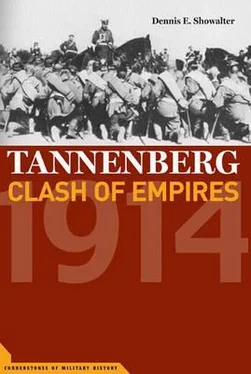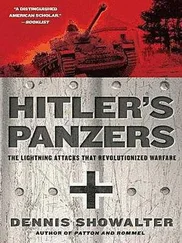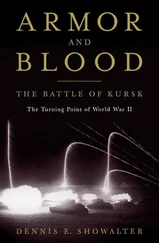In periodically advocating a division of the peninsula into spheres of influence, Bismarck was by no means naive enough to assume that either Russia or Austria would be permanently satisfied with a half share. But such a division would buy time, and as Bismarck grew older even short periods of time became ever more important to him. The chancellor had no desire to see Russia expand her influence anywhere in Europe. Such aggrandizement would mean both a direct threat to Germany and Austria and a significant disturbance of the territorial status quo Bismarck was committed to preserving. At the same time he had no will even to risk war with the tsar’s empire. Apart from the golden opportunities this would offer France, Russia’s very size mitigated against anything like the kind of total victory won against France in 1871—a victory which itself seemed increasingly anomalous. 26
From the inception of the German Empire, its military plans for the East were formulated in the context of a worst-case contingency: a two-front war against France and Russia. In such circumstances, Chief of Staff Helmuth von Moltke strongly favored seeking an operational decision in the east. While Russia was not likely to be overthrown in a brief campaign, the chances of knocking her out of a general war in a relatively short time were good—if the war was conceived as one of limited aims. A battle of annihilation was not a reasonable possibility. However, a series of theater-level victories might well disorganize her war effort to the point where the government would be amenable to negotiations if Germany offered reasonable terms. 27
The alternatives were hardly promising. In 1885 a general staff exercise projected a two-front war against France and Russia, with Austria initially remaining neutral and the bulk of Germany’s army concentrated in the West. Four active corps, supported by a mixed bag of reserve and garrison troops, were left to hold the eastern theater against twenty Russian divisions—a reasonable evaluation of Russia’s capacities in the context of the problem. The best the Germans could manage was a fighting retreat across the Vistula. Four corps, Moltke sourly observed, could not hold East Prussia or protect Berlin against ten Russian corps no matter how cleverly they were maneuvered. 28
On the other hand, the long, open frontier between Germany and Russia offered correspondingly wide scope for offensive operations. The East Prussian salient might be threatened with immediate strangulation by a Russian blow at its base, but it provided an excellent sally-port against a Russian concentration in Poland. Moltke believed the best way for the Dual Alliance to defend the Eastern frontier was to attack, with Germans from the north and Austrians from the south meeting somewhere on enemy soil. This conviction, tested successfully in a staff exercise of 1886, was strong enough to lead the chief of staff increasingly to consider the possibility of a preventive war—a first strike, in cooperation with Austria, against the Russian garrisons in Poland and Galicia. 29
But what could Germany hope to gain from such a conflict? Intellectuals might dream of population shifts on a scale unseen since Genghis Khan. Bismarck was a practical statesman. The annexation of Alsace-Lorraine could be justified on the grounds of generating national identity while securing natural resources defended by Metz and the line of the Vosges. No such geographic barriers existed in the East. As for an economic equivalent to the iron mines of Lorraine, German agriculture was already alarmed at the prospects of competition from Russian grain. Territorial gains in the east would only mean an increase in the number of Poles, Baits, and Russians under German rule. Bismarck’s distaste for the Poles of Posen and Silesia was already too marked for him to welcome that possibility.
Bismarck was, in short, not enthusiastic about challenging Russia for any reason, much less for the sake of Austria-Hungary’s beaux yeux. He was unsympathetic alike to Cisleithanian businessmen’s dreams of Balkan markets and to the Hungarian parliament’s Russophobic rhodo-montade. He spent much effort after 1878 warning Austria that Germany would not support her directly in the Balkans, particularly when it came to defending economic interests. 30The exact degree of Bismarck’s acceptance of specific Russian claims and positions in the Near East remains debatable. In general, however, he seems to have regarded Russia’s territorial ambitions as part of that stream of time human beings could neither create nor, ultimately, direct. His frequent references to Russia as an elemental force, no more to be changed than bad weather, strengthen images of inevitability subject, perhaps, to judicious guidance, but beyond anyone’s power to terminate or modify.
This perception was reinforced as Russia’s suspicion of Bismarck’s good will reached new peaks during the Bulgarian crisis of 1885. Russia’s position in the state it had helped establish only seven years earlier virtually collapsed from Russian heavy-handedness. Nevertheless Bismarck emerged as the villain, the wire-puller and manipulator. He was presented in St. Petersburg as simultaneously obstructing Russia’s legitimate Balkan claims and encouraging her further involvement in the swamp of Bulgarian politics. 31
In this context golden bullets began acquiring new importance. Since the 1850s, Russia’s domestic problems had been increasingly coalescing into what modern economic theory describes as a crisis of development. Costly foreign wars and territorial expansion in central Asia, combined with expensive programs of railroad building and industrialization, put unheard-of strains on the imperial treasury. The actual and potential supplies of private capital in Russia were limited. A political system neither strong enough nor autocratic enough to practice the forced bootstrapping common in the twentieth century turned logically to external sources.
German bankers and investors had been funding Russian economic enterprises for decades. Bismarck’s own banker, Gerson Bleichröder, was deeply involved in the marketing of Russian securities, selling some of the paper to Bismarck himself.
The recipients of this German largesse were anything but suitably grateful. Nationalists argued that the interest rates were too high and the terms too short: Imperial Russia was being treated like a deadbeat gambler. Financiers were concerned with the growing complexity of a public debt contracted without any systematic planning. Panslavs took alarm at the threats posed by German involvement in Russia’s economic life. Businessmen demanded higher tariffs, protecting their infant industries from German competition. 32
By the mid-1880s the German foreign office was also questioning the success of Bismarck’s embryonic economic diplomacy. Germany seemed to have benefitted little from official and private efforts to sustain Russia’s development. The Cobdenite argument that, properly understood, a state’s economic and diplomatic interests must coincide had never been widely accepted even in German liberal circles, much less among the group of young diplomatic Turks whose spokesman was Friedrich von Holstein.
Holstein’s critics then and now have considered him a man of limited vision, blinded to the value of Germany’s Russian connection by his hostility towards Bismarck, his sympathy for the ramshackle Habsburg Empire, and his identification with the saber-rattling militants urging a war of conquest in the east. Holstein was, however, by no means a blind Russophobe. Since joining the foreign office in 1876 he had observed and participated in Bismarck’s increasingly desperate efforts to integrate Russia into a stable European network. The process had convinced him that the chancellor was making a fundamental error. Not France, but Russia, Holstein reasoned, was the greatest ultimate threat to Germany’s security. France might be the clearer and more present danger, but a good big man can be expected to whip a good little man. Should France try conclusions with the German Empire, what happened in 1870–71 would happen again.
Читать дальше












